A LEVEL & BTEC

Sixth Form Prospectus
The Sixth Form at the British School of Bahrain comprises approximately 250 students who possess a wide range of academic and extra-curricular interests. We provide a highly personalised curriculum and expert pastoral care, making the Sixth Form an outstanding study centre for all students, whether they have been at the BSB since Reception, or they joined our ranks at the start of Lower 6th. This prospectus provides information that will help you understand why the BSB Sixth Form is the best choice for you, and guide you in making some important subject choices for the two years ahead of your child. The Sixth Form is a crucial step in their journey towards university and beyond, and making intelligent, informed decisions is essential. If you have any questions that cannot be answered by this prospectus, then we will be very happy to answer them personally.
The British School of Bahrain
Founded in 1995, the British School of Bahrain has grown into its purpose-built campus in Hamala, on the Western edge of the Kingdom of Bahrain. With over 90 nationalities represented in the student body, we are a truly international school focused on delivering an outstanding British curriculum. We are on accredited ‘British School Overseas’, verified via an outstanding inspection, as well as rated outstanding by the Bahrain Education and Training Quality Authority.
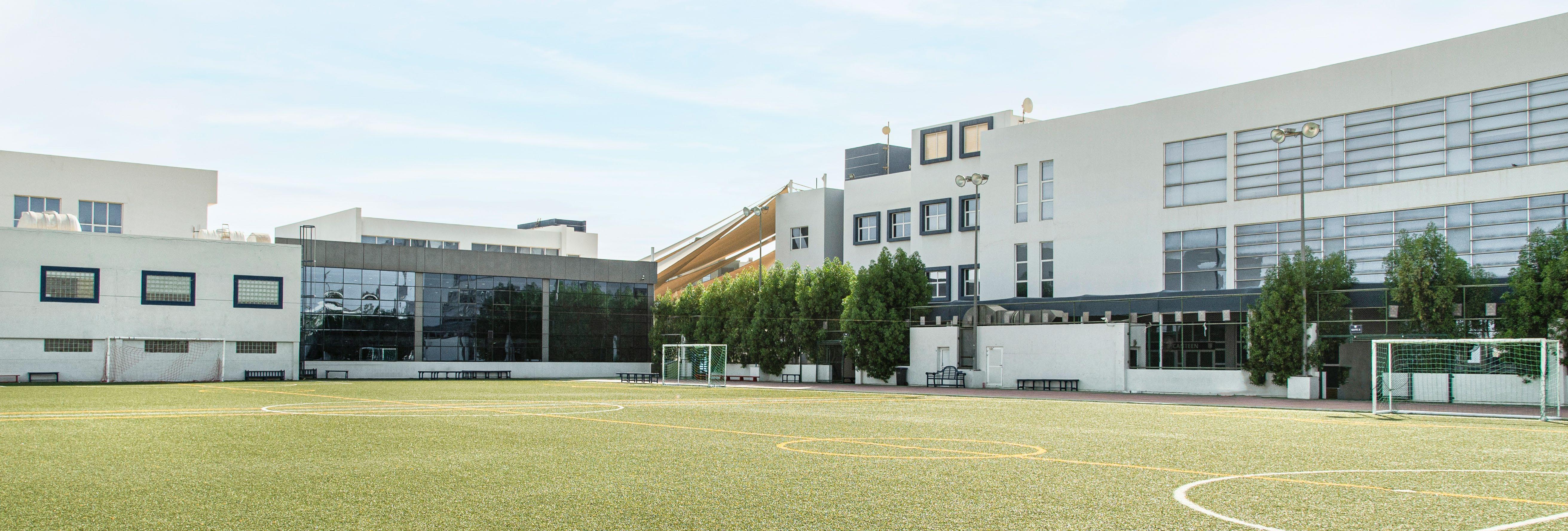
A WELCOME FROM
MR. WAYNE RIDGWAY - HEAD
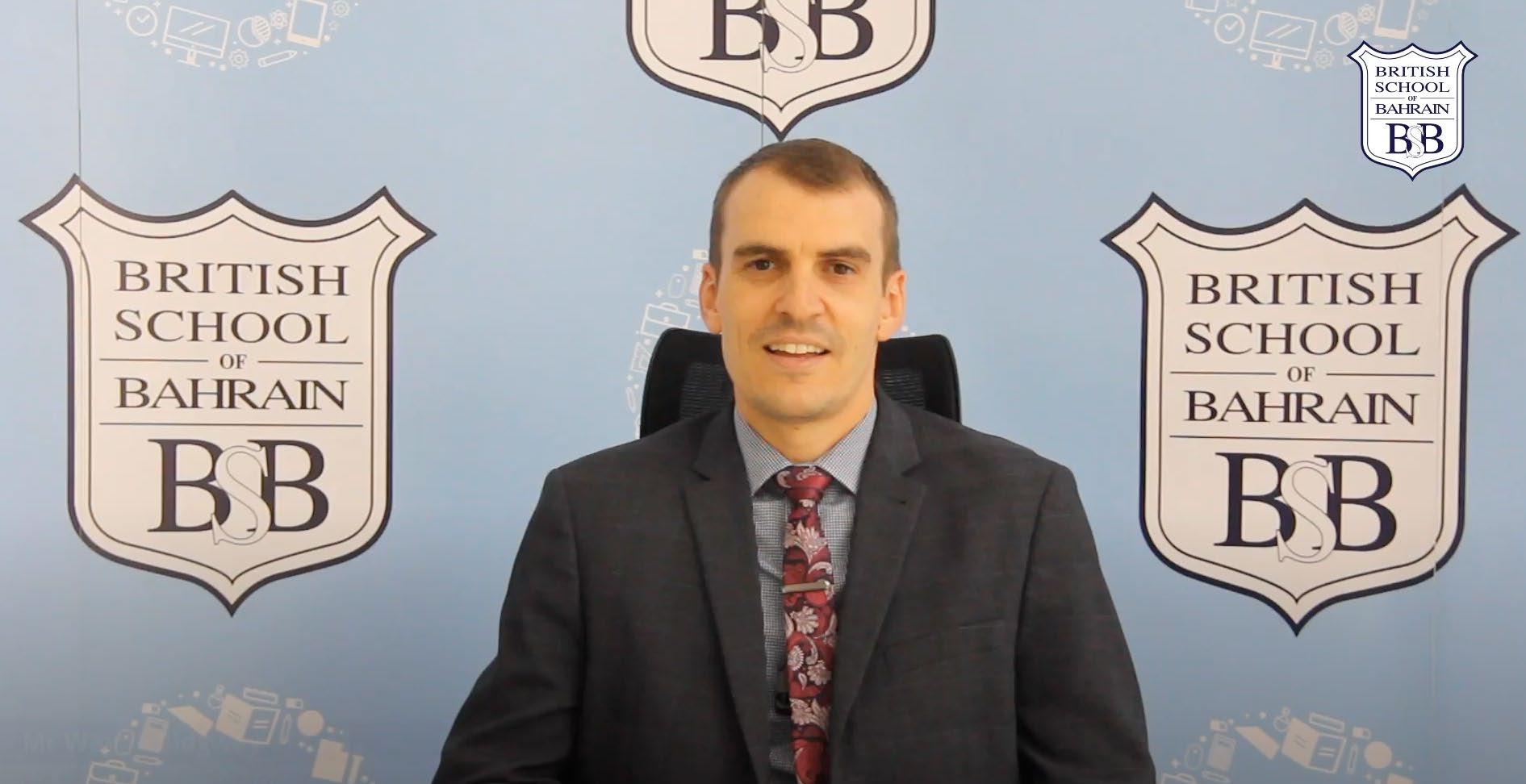
OF SENIORS
Curriculum Choices
You will need to choose which courses you wish to study. You can use the information in this booklet; consider your interests and strengths; take into account the advice of your teachers; and discuss your preferred courses with your family and friends. It is important that, as an individual, you also carry out independent research into the different pathways available to you through the Sixth Form, university and employment. The choices you make impact your future, so it is vital that you play the leading role in planning them. The BSB will work closely with you to make sure you make the right choices, and ensure that your path through Sixth Form opens up the right doors for you afterwards. Please note that many of our courses require you to reach a certain GCSE grade or equivalent. This is to ensure that you do not enrol on a course and later regret it, as you find it difficult to cope with the content. Ultimately, the final decision as to whether you can enrol on a course rests with the school, and our judgment is based on vast experience with hundreds of students. Please also note that there is a minimum number of students required for a course to run.
Most students choose 3.5 or 4 A Levels at the beginning of Year 12, and by Year 13 have focused on 3 of these original courses, having dropped one subject (often obtaining an AS Level GCE certificate, equivalent to half an A Level), or finishing their Extended Project Qualification. Some students continue with all four A Levels until the end of their time in the Sixth Form. The BSB Sixth Form only very, very rarely permits students to take 5 A Levels. While BTEC courses are slightly different, we broadly adopt the same approach with students taking a blend of BTEC and A Level courses or only BTEC courses; but a workload equivalent to 3.5 or 4 A Levels in Year 12, and often dropping down to a workload equivalent to 3 A-Levels by Year 13.
In the BSB sixth form, you will:
• Be welcomed into our supportive, vibrant community by your peers and our Heads of Year 12 and 13.
• Pursue a personalised programme of study delivered by experienced, capable and responsive teachers.
• Choose from a wide range of A Level and BTEC subjects, while also having the opportunity to engage in a variety of extracurricular activities.
• Develop a range of skills essential for life in the twentyfirst century, particularly time management, teamwork and leadership skills.
• Benefit from expert guidance to assist you with your university choices and applications.
THE SIXTH FORM
AT THE BSB
Pastoral Care
Teaching and Learning
Independent learning is a crucial aspect of life in the Sixth Form, and distinguishes education at this level from previous years and courses. You will have a number of study periods each week, and are expected to use them wisely. You will have a dedicated desk area in which to work, and the library and designated study rooms are also available to you. The ability to show initiative and work independently are essential,not just in the Sixth Form, but in higher education and the world of work, and we assure you that your attitude towards independent study is a major determinant of your success in any Sixth Form course.
In classrooms, you will find that teachers will provide you with less direct instruction and instead facilitate your own exploration of the subjects and topics at hand. You will find the content more challenging and you must be willing to dedicate additional time to revisiting and revising work that you have done that week. However, remember that our teachers are always willing and able to provide additional support when you need it: you are by no means alone!
The transition into Sixth Form is more than simply moving up a year group. You are entering a very different environment where the onus is on you to drive your own learning and success. You will be thinking ahead to university and your future career, while trying to juggle a number of demanding courses and also continue to involve yourself in extracurricular and social activities. Your tutors will work closely with you on a daily basis, providing sound advice and helping you to manage your workload and commitments. The sixth form team will step in when additional help is needed while, if you need it, our School Counsellor is dedicated full-time to your welfare. Finally, our support for students applying to universities all over the world is comprehensive and has proven highly successful
Progress Reviews and Intervention
Every BSB student regularly reviews their progress with subject teachers, and after each assessment will have dedicated time for reflection on their work, and improvement of it. The sixth form team oversee this process, being kept aware of any academic issues that arise and putting in place relevant, effective intervention for students who need a little more support. In most cases, however, students respond to feedback, develop their subject knowledge and understanding of the exams they will face, and improve throughout the one or two year courses they take.
Grade cards and narrative reports ensure that you and your parents can see your progress, and your parents will also have opportunities to speak face to face with your teachers at parent evenings. However, our door is always open to you and your family should you wish to speak about a particular concern; simply contact the form tutor in the first instance to arrange a meeting.

A LEVELS AND BTECS
What are A-Level Courses?
The Advanced Level is a subject-based qualification offered by educational bodies in the United Kingdom, and there are qualifications available in dozens of different subjects. It is designed as a two-year further education course that normally leads to university or to a career, and it is internationally recognised for its rigour. As well as being offered by state-sector and independent schools in the UK itself, A-Levels have for some decades been a popular choice of qualification for international schools.
What are BTEC Courses?
The Business and Technology Education Council was created in 1984, and offers further education qualifications at a number of levels. They are different to A Levels as they are more coursework orientated and focus on ‘real-world’, practical experience of a subject rather than theory. That said, most BTECs are moving towards a combined courseworkand-exam framework. The BSB offers qualifications at Levels 2 and 3; in the Sixth Form, Level 3 qualifications are on offer.
In January 2018, over one-quarter of university students in the UK had taken one or more BTEC qualifications. BTEC courses may be offered at Subsidiary Level, where they are equivalent to one A Level; at Diploma Level, where they involve more depth and breadth of work, and are equivalent to two A Levels; and Extended Level, where they are equivalent to three A Levels.
Many UK universities accept students with BTEC Level 3 qualifications, depending on the course they wish to take, and the qualification is also recognised by a growing number of international higher education institutions. The BSB has had extraordinary success helping BTEC-pathway students gain access to excellent degree courses at universities such as the Universities of Essex and Kent in the UK, Bahrain Polytechnic, and the University of Manitoba in Canada.
Is One Type of Course Better than the Other?
Students wishing to go to top Russell Group universities, must take A levels. For many other universities, A Levels are preferred for certain courses. However, like A Levels, the BTEC pathway offers chances to access very good university courses.
Furthermore, there is nothing stopping students from taking a combination of A Level and BTEC courses. At this stage, speak with your teachers and if you are looking further ahead, to our university counsellor - they will provide you with sound advice. Please remember that one key distinction between A Levels and BTECs are the Sixth Form entry requirements; if you do not make the grade required for a particular A Level course, you may still be able to take an alternative BTEC course.
For all A Level courses, additional fees are payable for entry to the exams. For BTEC courses, a registration fees is payable at the start of the course.

So Which Blend of Courses Should I Take?
The answer to this question is very personal, but some general guidelines may help you:
• Try to choose subjects that interest you and that you have been good at.
• Remember that you can take all A Levels, all BTECs, or a blend of the two.
• Discuss your choices with lots of people, but remember that this is your future and you should be the primary decision maker.
• Be realistic: even if you worked day and night to get a B grade in GCSE Mathematics, the school’s historical data is clear: you should definitely not take A Level Mathematics.
We want you to get to a great university, but we must temper this with considering what is achievable.
• If you do not like the examination experience, consider BTECs as a very viable option that will not prevent you from accessing a great course at a great university.

• Remember that opting for four A Levels is not a must; you may decide to take the EPQ as ‘half’ an A Level, and complete it by early in Year 13.
• Above all else, talk with your teachers, your Head of Year and if necessary, the 6th form leadership team. They are the professionals in the field, and not only do they know best, they genuinely have your best interests at heart too.
A FINAL WORD
Applying To Universities
Admission to UK universities relies on predicted A-Level or BTEC grades, as well as a detailed personal statement and a reference from the school. GCSE grades are also taken into account. Universities set minimum grade requirements for each of their courses, and you can normally find these requirements on the institution’s website with little dif culty. Please note that GCSEs in English and Mathematics (or equivalent) are also required for entry to a UK university. If you are applying to American colleges, you are advised to study for and sit the SAT, offered throughout each year by the College Board. They are taken externally at a recognised centre; the school can provide details of such centres in Bahrain. An increasing number of US universities accept candidates on the strength of their A Level alone; some even offer credits for high A Level passes. American universities typically require a number of application ‘essays’, and the BSB will help you with these. European universities outside of the UK, and Canadian universities, have also proven popular destinations for BSB students. They all have different entry requirements and procedures; the school is aware of most of them and can provide a great deal of advice and assistance. They almost all recognise A Level, while the recognition of BTEC (particularly Extended) is growing.
Work Experience
We encourage our students to do work experience during the school holidays between GCSE and Year 12 or between Years 12 and 13. This is especially important for those who are planning a medical degree. However, all universities like to see reference to work experience in the personal essay or statement even if the student has changed career path. We often use information from employers to add to the reference we write for the university. Work experience can also give the student a good insight into the work involved.
Facilitating Subjects
Some A level subjects are more frequently required by top universities for entry to their degree courses. They are known as ‘facilitating subjects’ because they leave open a wide range of options for university study. The subjects most commonly referred to as ‘facilitating’ are: Biology, Chemistry, English Literature, Geography, History, Physics, Mathematics (and Further Mathematics) and Modern Languages.
What Happens Between Now and August Next Year?
You are at the beginning of a nine month process to choose your Sixth Form subjects. The question and answer session for parents and students will give you an opportunity to ask about anything you are unsure of or unable to find in this prospectus or the options website. Once you have made your choices, you must complete the online options form. The school will review option choices and provide further guidance where necessary to individuals. After this point, subject choices will be limited by space in the classes. Please note that we will not be able to satisfy everyone with the option blocks, and remember that (as previously mentioned) subjects that do not make the minimum number of students may not run. We will inform you if we feel that one or more of the subjects you have chosen may not run in August, although this is rare. Finally, once we reach August, you, your family and teachers will see how you did in your GCSE examinations. We will consider if you made the minimum grade required for Sixth Form entry and your subject choices, and either confirm or discuss your subjects further with you and your parents. At this time, the school will make a final decision as to whether a subject is going to run, based on the number of students that have opted for the course.
Making the Most of your Time in The Sixth Form
If you want to enjoy your time in the BSB Sixth Form, you need to do a lot more than simply study for your academic subjects. Our Year 12 and 13 students throw themselves into many fantastic extracurricular and social opportunities, from sporting to creative, charitable to musical, and everything else in between. Our expectation is that you will contribute to the school community, acting as a role model to younger students and contributing to the success of the Sixth Form and the BSB. We will provide opportunities for you to get involved, and encourage you to do so: from then on, what you put in will determine how thriving a community the Sixth Form is. Remember also, that the more you do, the more vivid and compelling your personal statements and references for university will be!
ENTRY REQUIREMENTS FOR
SIXTH FORM COURSES
Subject Entry Requirements
A Level Courses
Arabic C or above in Arabic first language or A*/A in second language Arabic.
Art Grade 6 or above in Art
Biology 7 in Biology. 7 in Maths is desirable
Business 7 or above in English and Maths. GCSE Business is desirable
Chemistry 7 in Chemistry and Maths
Computer Science 7 in Computer Science. 6 or above in Maths, English and Science is desirable
Economics 7 in Economics. 7 in English and Maths is desirable
English Literature 7 or above in English
French 7 or above in French
Further Maths 8 or 9 in Maths (pupils must also choose Maths as an option)
Maths 7 or above in Maths
Geography 7 or above in Geography
Subject Entry Requirements
History 7 or above in History
Music 7 or above in Music plus performance standard of at least a 6 in ABRSM or Trinity
Physics 7 in Physics and Maths
Psychology 6 or above in Maths and English
Spanish 7 or above in Spanish
Drama Grade 4 or above in English
PE 6 in science subjects plus play one sport at competitive level BTEC Courses
Business 5 A*-C (or equivalent) including Maths and English
Engineering Grade 5 in Computer Science or ICT. Grade 5 in Physics and Maths
IT Grade 5 in Computer Science or ICT. Grade 5 in Physics and Maths
Applied Science Grade 4 or higher in two Sciences and Maths
Sport 5 A*-C (or equivalent) plus a keen interest in Sport.
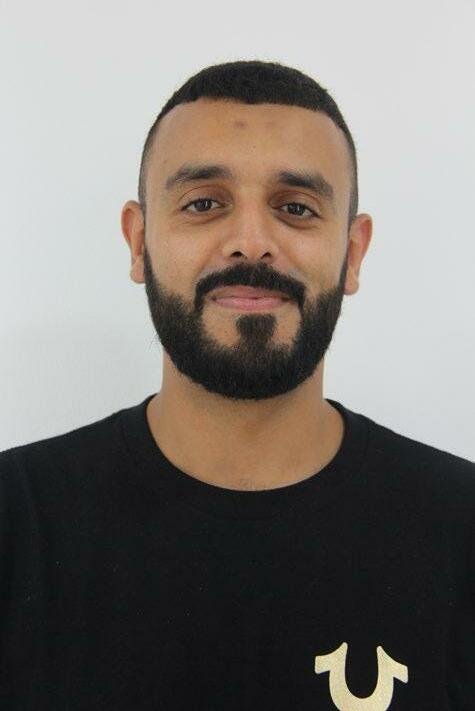
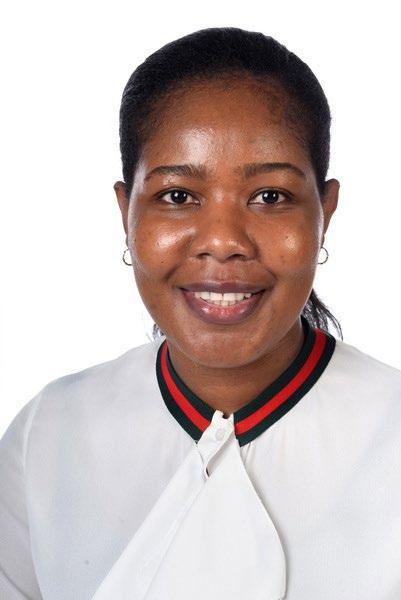




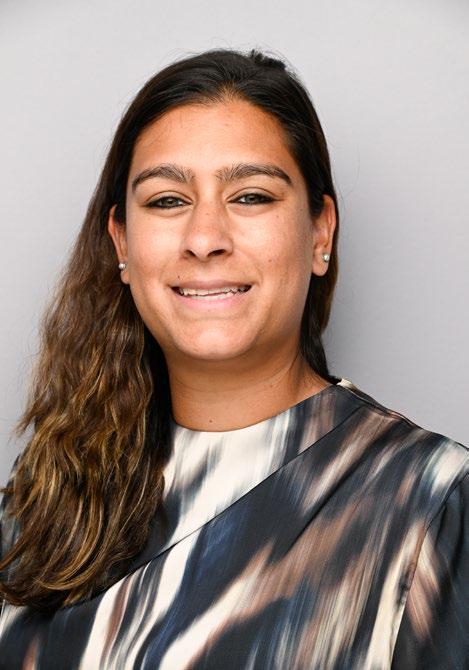 MS. SANIYA KAKKAR Assistant Director of Sixth Form kakkars@thebsbh.com
MR. ANDREW ROGERS Head of Year 11 rogersa@thebsbh.com
MR. ADAM SAVVEDES-LAW Assistant Director of Sixth Form savvedes-lawa@thebsbh.com
MS. SEMONE BEECHER Assistant Director of Sixth Form beechers@thebsbh.com
MS. SANIYA KAKKAR Assistant Director of Sixth Form kakkars@thebsbh.com
MR. ANDREW ROGERS Head of Year 11 rogersa@thebsbh.com
MR. ADAM SAVVEDES-LAW Assistant Director of Sixth Form savvedes-lawa@thebsbh.com
MS. SEMONE BEECHER Assistant Director of Sixth Form beechers@thebsbh.com
Who Should I Contact If I Have Further Questions?
Should I Contact If I Have Further Questions?
MR. KENNETH WINSTANLEY Deputy Head winstanleyk@thebsbh.com
Who
MR. ANDREW VLADIMIROU Assistant Director of Sixth Form vladimiroua@thebsbh.com
MR. THOMAS WEEKS-BARNITT Director of Sixth Form barnittt@thebsbh.com
ENGLISH
Exam Board Edexcel Syllabus code 9ET0
What will students learn?
Students will build on the analytical skills developed at (I)GCSE and will study more interesting texts drawn form the genre of prose, poetry and drama. The examination texts are chosen by the teacher from a list provided by Edexcel. The A-Level coursework unit allows for an indepth comparative study of two texts from a given list.
A typical route through the course might look like this:
• AS Level Examinations taken in Year 12 on Tennessee Williams’
A Streetcar Named Desire, Poems of the Decade, Mary Shelley’s Frankenstein and Margaret Atwood’s The Handmaid’s Tale.
• A Level- 3000-word comparative coursework essay, and examinations taken in Year 13 on Tennessee Williams’ A Streetcar Named Desire, Shakespeare’s Othello, Poems of the Decade, Cristina Rossetti poetry, Mary Shelley’s Frankenstein and Margaret Atwood’s The Handmaid’s Tale.
Skills and understanding
• Students will develop their communication skills (written and verbal)
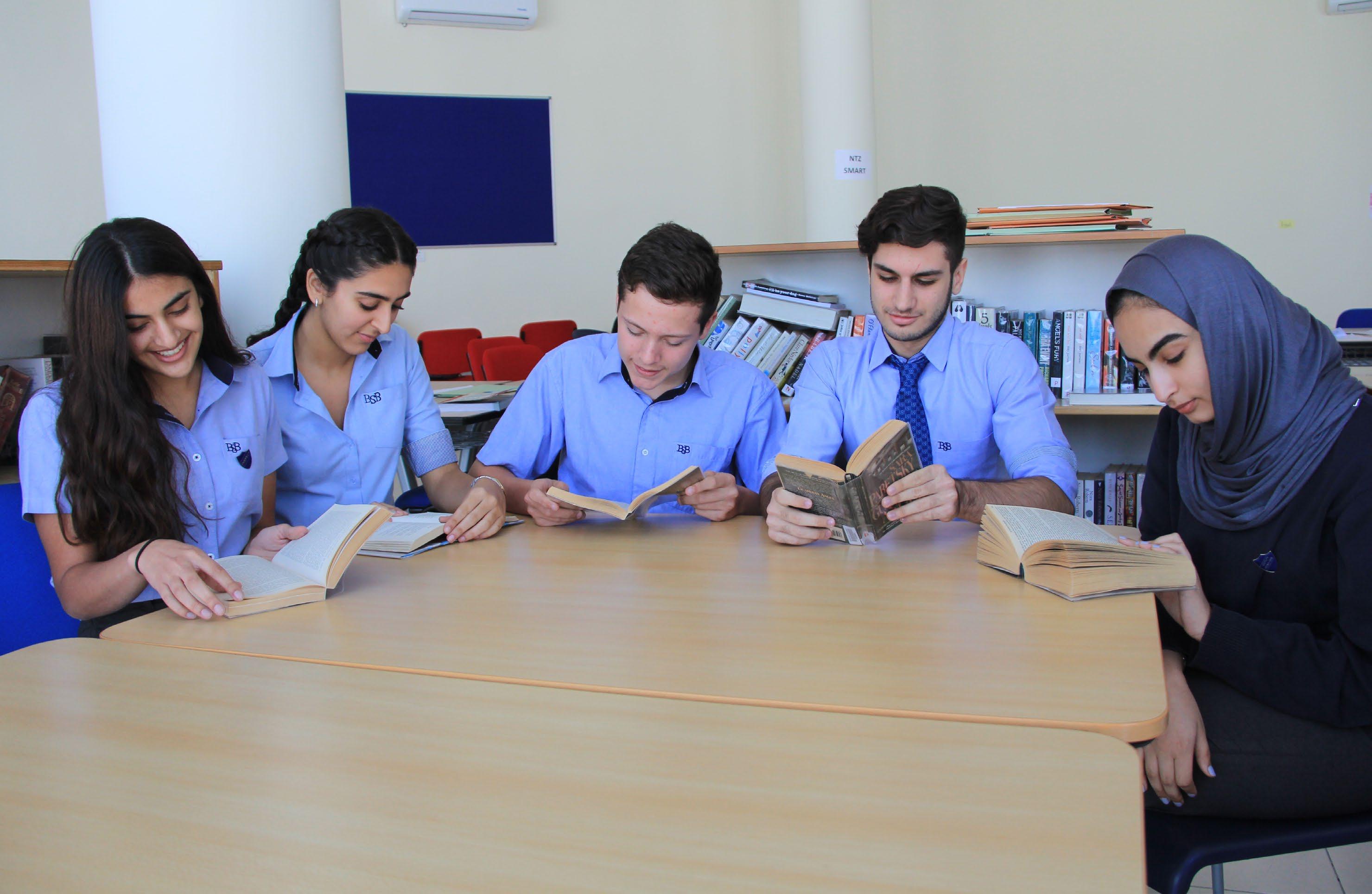
• Students will learn how to work collaboratively and independently
• Students will learn a wide range of critical vocabulary and develop critical analysis skills
• Students will develop their ability to write with increasing sophisitication and precision.
Examination structure
This is a linear course. A level examinations will be at the end of Year 13.
Higher Education and Career Paths
English Literature is an excellent qualification to gain. Its academic rigour is well-known (e.g. the UK’s group of top 20 universities - the Russell Group - has designated it as one of their preferred ‘facilitating subjects’).
A good grade in this subject is therefore helpful for any degree in: Arts, Humanities, Languages, Law etc. We even sometimes see scientists taking this subject along with the likes of Biology, Chemistry, Physics and Mathematics. English graduates themselves go on to a wide range of highly-skilled careers where their analysis, precise thought and highly-developed communication skills are much sought-after.
LEVEL ENGLISH LITRATURE Entry requirements 7/ A or above in (I)GCSE English Language and English Literature (ideally both subjects, but a 7/A in English Literature will be considered). Click here to see more course specifications. Component 1 2 3 4 Component name Drama Prose Poetry Coursework Assessment method Exam Exam Exam Coursework Weighting % 30% 25% 30% 20% Duration of exam 2h15 1 hour 15m 2h 15m
A
MATHEMATICS
What will students learn?
• Develop their understanding of mathematics and mathematical processes in a way that promotes confidence and fosters enjoyment
• Develop abilities to reason logically and recognise incorrect reasoning, to generalise and to construct mathematical proofs
• Extend their range of mathematical skills and techniques and use them in more difficult, unstructured problems
• Develop an understanding of coherence and progression in mathematics and of how different areas of mathematics can be connected
• Recognise how a situation may be represented mathematically and understand the relationship between ‘real-world’ problems and standard and other mathematical models and how these can be refined and improved
• Use mathematics as an effective means of communication
• Read and comprehend mathematical arguments and articles concerning applications of mathematics
• Acquire the skills needed to use technology such as calculators and computers effectively, recognise when such use may be inappropriate and be aware of limitations
• Develop an awareness of the relevance of mathematics to other fields of study, to the world of work and to society in general
• Take increasing responsibility for their own learning and the evaluation of their own mathematical development.
Skills and understanding
Students will need to be able to problem solve; there should be good exam technique; steps to working should be clear and methodical; students should be able to contextualise answers.

• Develop their understanding of mathematics and mathematical processes in a way that promotes confidence and fosters enjoyment.
• Develop abilities to reason logically and recognise incorrect reasoning, to generalise and to construct mathematical proofs.
• Extend their range of mathematical skills and techniques and use them in more difficult, unstructured problems.
• Develop an understanding of coherence and progression in mathematics and of how different areas of mathematics can be connected.
Examination structure
Modular course with examinations in January and June. Students will be doing Pure Mathematics 1, 2, 3, 4, Mechanics 1 and Statistics 1
Higher Education and Career Paths
Mathematics opens doors to many respectable courses as it is a demanding and well recognised A level. However, in order for it to provide opportunities students are required to secure a good grade at the end of the course (usually A or above), particulary if students wish to study in top UK universities. Studying Mathematics can lead to many career paths including accountancy, teaching, actuary and banking to name a few. engineering, sciences, computing, economics or finance.
MATHEMATICS Exam Board
code
Component 1 2 3 4 5 6 Component name Pure Mathematics 1 Pure Mathematics 2 Pure Mathematics 3 Pure Mathematics 4 Mechanics 1 Statistics 1 Assessment method Exam Written Examination Written Examination Exam Exam Exam Weighting % 16 ⅔ % 16 ⅔ % 16 ⅔ % 16 ⅔ % 16 ⅔ % 16 ⅔ % Duration of exam 1h 30m 1h 30m 1h 30m 1h 30m 1h 30m 1h 30m Entry requirements 7 or above in GCSE Mathematics or equivalent. Click here to see more course specifications.
IAL
Edexcel Syllabus
YMA01
Exam Board Edexcel Syllabus code YFM01
What will students learn?
• Develop their understanding of mathematics and mathematical processes in a way that promotes confidence and fosters enjoyment
• Develop abilities to reason logically and recognise incorrect reasoning, to generalise and to construct mathematical proofs
• Extend their range of mathematical skills and techniques and use them in more difficult, unstructured problems
• Develop an understanding of coherence and progression in mathematics and of how different areas of mathematics can be connected
• Recognise how a situation may be represented mathematically and understand the relationship between ‘real-world’ problems and standard and other mathematical models and how these can be refined and improved
• Use mathematics as an effective means of communication
• Read and comprehend mathematical arguments and articles concerning applications of mathematics
• Acquire the skills needed to use technology such as calculators and computers effectively, recognise when such use may be inappropriate and be aware of limitations
• Develop an awareness of the relevance of mathematics to other fields of study, to the world of work and to society in general
• Take increasing responsibility for their own learning and the evaluation of their own mathematical development
Skills and understanding
• Develop their understanding of mathematics and mathematical processes in a way that promotes confidence and fosters enjoyment.
• Develop abilities to reason logically and recognise incorrect reasoning, to generalise and to construct mathematical proofs.
• Extend their range of mathematical skills and techniques and use them in more difficult, unstructured problems.
• Develop an understanding of coherence and progression in mathematics and of how different areas of mathematics can be connected.
Examination structure
The course is modular. There are exams in January and in June. Students will take exams in Further Pure mathematics 1, 2 and 3, Decision 1, Mechanics 2 and Mechanics 3.
Higher Education and Career Paths
Studying Further Mathematics reinforces, extends and deepens topics studied in A level Mathematics. Studying Further Mathematics highlights able mathematicians and assists with studying at degree level. It is particularly useful when studying engineering, sciences, computing, economics or finance.

IAL FURTHER MATHEMATICS Entry requirements 8 or 9 at IGCSE mathematics. Students must also choose international A Level maths. Click here to see more course specifications. Component 1 2 3 4 5 6 Component name Further Pure Mathematics 1 Further Pure Mathematics 2 Further Pure Mathematics 3 Decision Mathematics 1 Mechanics 2 Mechanics 3 Assessment method Exam Exam Written Examination Exam Exam Exam Weighting % 16 ⅔ % 16 ⅔ % 16 ⅔ % 16 ⅔ % 16 ⅔ % 16 ⅔ % Duration of exam 1h 30m 1h 30m 1h 30m 1h 30m 1h 30m 1h 30m
LANGUAGES
A LEVEL FRENCH
What will students learn?
Papers 1 and 3 will be based on content from the following four themes. The four themes address a range of social issues and trends, as well as aspects of the political and artistic culture of France and French-speaking countries. Themes 1, 3, and 4 focus on aspects of society or history of France only. Theme 2 requires students to broaden their knowledge across any Francophone country/countries and/or community/communities. Each theme is broken into three sub- themes.
Theme 1: Les changements dans la société française
Theme 2: La culture politique et artistique dans les pays francophones
Theme 3: L’immigration et la société multiculturelle française
Theme 4: L’Occupation et la Résistance
Skills and understanding
Exam Board Edexcel Syllabus code 9FR0
Entry requirements
7 or above in GCSE French or equivalent. Click here to see more course specifications.
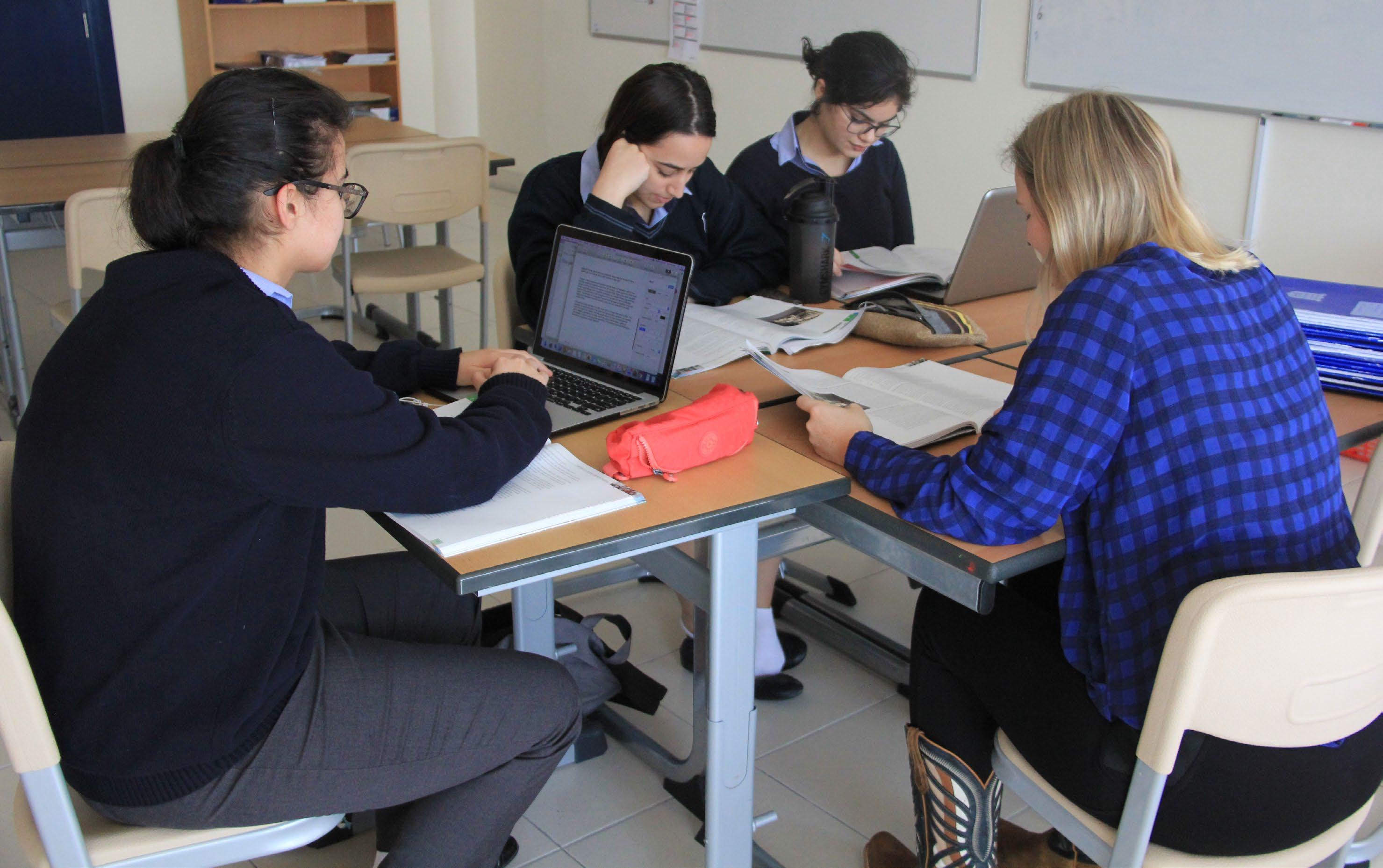
Languages should appeal to all students and this course should inspire them to develop not only advanced level practical knowledge of the language but also an appreciation of the literature, films and culture of the target language countries. This course is designed to give students the opportunity to acquire valuable transferable study skills such as autonomy, resourcefulness, creativity, critical thinking and linguistic, cultural and cognitive flexibility, helping to prepare students for higher education and enhance their employability profile.
Examination structure
2 year linear course with exams in the final year. Students must complete their speaking assessment in April and all other assessments in May/June in any single year. All assessments are externally marked.
Higher Education and Career Paths
The question should be Why not study a language? Technology, globalisation and ease of international travel are bringing more of the world within our reach. Studying languages can give you that competitive edge. Knowledge of a foreign language can lead to exciting career opportunities that those without an extra language have little chance of accessing.
Component 1 2 3 Component name Paper 1 Listening, reading and translation Paper 2 Written response to works and translation Paper 3: Speaking Assessment method Written Examination Written Examination Oral Examination Weighting % 40% 30% 30% Duration of exam 2h 2h 40 m 21 to 23 m
A
SPANISH
What will students learn?
Papers 1 and 3 will be based on content from the following four themes. The four themes address a range of social issues and trends, as well as aspects of the political and artistic culture of Spain and Spanish-speaking countries. Themes 1, 3, and 4 focus on aspects of society or history of Spain only. Theme 2 requires students to broaden their knowledge across any Spanish speaking country/countries and/ or community/ communities. Each theme is broken into three sub- themes.

• La evolución de la sociedad española
• La cultura política y artística en el mundo hispanohablante
• La inmigración y la sociedad multicultural española
• La dictadura franquista y la transición a la democracia Skills and understanding
Languages should appeal to all students and this course should inspire them to develop not only advanced level practical knowledge of the language but also an appreciation of the literature, films and culture of the target language countries. This course is designed to give students the opportunity to acquire valuable transferable study skills such as autonomy, resourcefulness, creativity, critical thinking and linguistic, cultural and cognitive flexibility, helping to prepare students for higher education and enhance their employability profile.
Examination structure
Exam Board Edexcel Syllabus code 9SP0
2 year linear course with exams in the final year. Students must complete their speaking assessment in April and all other assessments in May/June in any single year. All assessments are externally marked.
Higher Education and Career Paths
The question should be Why not study a language? Technology, globalisation and ease of international travel are bringing more of the world within our reach. Studying languages can give you that competitive edge. Knowledge of a foreign language can lead to exciting career opportunities that those without an extra language have little chance of accessing.
LEVEL
Component 1 2 3 Component name Paper 1 Listening, reading and translation Paper 2 Written response to works and translation Paper 3 Speaking Assessment method Written examination Written examination Oral examination Weighting % 40% 30% 30% Duration of exam 2 h 2h 40 m 21 to 23 m Entry requirements 7 or above in GCSE Spanish or equivalent. Click here to see more course specifications.
IAL ARABIC
What will students learn?
• The Advanced Subsidiary specification requires students to:
• Read and respond to a variety of Arabic-language written texts, including authentic sources, covering different contexts, registers, styles and genres.
• Adapt their written Arabic language appropriately for different situations and purposes.
• Use the Arabic language accurately to express facts and ideas, and to present explanations, opinions and information in writing.
• Understand and apply the grammatical system and a range of structures of the Arabic language as detailed in Arabic unit content: Grammar list.
The Advanced Level specification requires students to:
• Use the Arabic language to present viewpoints, develop arguments, analyse and evaluate in writing.
• Understand and apply the grammatical system and a range of structures in Arabic as detailed in Arabic unit content: Grammar list.
• Study aspects of the contemporary society, cultural background and heritage of one or more of the Arabic-language countries or communities.
• Transfer meaning from English into Arabic.
Exam Board Edexcel Syllabus code YAA01
The knowledge and understanding requirements of this Advanced Subsidiary and Advanced Level specification are inextricably linked to the two language skills of reading and writing in Arabic in line with the requirements of the subject criteria. Although speaking and listening skills are not directly assessed, it is anticipated that these will be developed in the course of general teaching to support this specification.
Skills and understanding
• An understanding of a wide variety of complex reading texts for different purposes.
• An understanding of standard written language on both unfamiliar and familiar topics normally encountered in personal, social, academic or vocational contexts.
• The ability to write clear, well-structured texts using an appropriate style, highlighting relevant salient issues, expanding and supporting points of view with supporting arguments (where relevant) and showing controlled use of organisational patterns, connectors and cohesive devices.
• The ability to express themselves fluently, spontaneously and appropriately in a range of written contexts.
• The skills necessary for further study or employment, either in Arabic-speaking countries or where Arabic is used as the main medium of communication for business and commerce.
• An understanding of the nature of language in different cultural contexts in order to build up competence in written communication.
Click
Examination structure
The course is modular. Students will sit 1 module in Year 12 and they can continue their studies in Y13 by taking the full A-level.
Higher Education and Career Paths
The Pearson Edexcel International Advanced Level in Arabic is designed for use in schools and colleges. It is part of a suite of International A Level qualifications offered by Pearson Edexcel.
The Pearson Edexcel International Advanced Level in Arabic is designed primarily as a qualification for students who are studying Arabic in order to enhance their future educational or employment prospects. Achievement in this qualification is benchmarked against the Council of Europe’s Common European Framework of Reference (CEFR) for Languages.
Achievement is broadly equivalent to level B2 of the CEFR. Students at this level are expected to understand the main ideas of complex written Arabic about both concrete and abstract topics; write with a degree of fluency and spontaneity that makes reading possible without strain; produce clear, detailed text on a wide range of subjects; and explain a viewpoint on a topical issue, giving the advantages and disadvantages of various options.
Students will be expected to communicate formally and informally in a range of contexts, and to understand a wider range of texts and styles than they can produce themselves.
The aim of the Pearson Edexcel International Advanced Level in Arabic is to test Arabic language competence through realistic and contextualised tasks based on authentic texts.
Component 1 2 Component name Unit 1: Understanding and Written Response (XAA01) Section A: Reading, Section B: Grammar, Section C: Essay Unit 2: Writing and Research (YAA01) Section A: Translation, Section B: Creative/Discursive Essay, Section C: Research-based Essay Assessment method Written Examination Written Examination Weighting % 100% of the total IAS / 50% of the total IAL 100% of the total IA2 / 50% of the total IAL Duration of exam 2h30m 3h Entry requirements
or above in iGCSE Arabic (1st language) /A*/A in iGCSE 2nd Language.
here to see more course specifications.
C
ARTS
Exam Board Edexcel Syllabus code 9FA0
What will students learn?
Students will learn how to create an individual portfolio of work influenced by the work of others. Students will base their work around the four main learning objectives, Contextual Studies, development and experimenting, recording observations and final outcomes. Students will be learning to review and refine work as it progresses in order to reach a personal and meaningful response that realises intentions and makes connections between visual elements.
Skills and understanding
Generate a range of ideas by researching primary and contextual sources, be able to record practical and written observations, develop ideas through reviewing and refining work, and develop experimental skills through appropriate selections of media and processes.
Examination structure
The course is linear, meaning that all examinations will take place at the end of Year 13.
Higher Education and Career Paths
The course is an excellent foundation for the study of Art, Design or related courses at university. Opportunities for careers in Art and Design are not limited to Fine or Commercial artistry, but graphic design, illustration, animation,web design, and architecture.

Entry requirements
6 or above at GCSE. If a student is new to the school they will be expected to hand in a portfolio of work to the Head of Department. Click here to see more course specifications.
LEVEL ART Component 1 2 Component name Component 1 Component 2 Assessment method Coursework Exam Weighting % 60% 40% Duration of exam 2 h 30 m
A
A LEVEL DRAMA
What will students learn?
• The ability to recognise and understand the interrelationship between performer, designer and director
• The understanding that texts and extracts studied may represent a range of social, historical and cultural contexts
• The ability to analyse and evaluate their work and the work of others
• The ability to understand how performance texts can be interpreted and performed.
Skills and understanding
Knowledge and understanding;Candidates demonstrate their knowledge and understanding of drama text and its performance context, and of theatre-making traditions and theatre practice;Devising
Candidates demonstrate skill and creativity in devising original pieces of theatre for group performance;Performing;Candidates demonstrate acting skills in performing a range of text-based materials;Analysing and evaluating;Candidates demonstrate the ability to analyse and reflect on their own performance practiceand devising processes; candidates evaluate their own work and that of playwrights, performers or theatremakers.
Examination structure
Exam Board Edexcel Syllabus code 9DRO
Linear end of year exam - coursework completed during the two years and portfolio submission.
Higher Education and Career Paths
A-Level qualification allows students to study further at College or University and follow career paths in the following careers; technician, lighting board operator, set designer, set construction, sound board operator, property master, front of house manager, marketing, directing, acting, choreography, acting and teaching.
Component 1 2 3 4
Component name Written Exam Theatre-making and performing Coursework Theatre-making and performing Coursework Theatre in context
There are two compulsory parts, devising and performing.
Candidates work in a group to devise and perform a play based on the stimulus prescribed in the syllabus.
There are two compulsory parts, devising and performing.
Candidates work in a group to devise and perform a play inspired by one of the theatre practitioners, traditions or styles prescribed in the syllabus.
Assessment method
Candidates answer two questions: One question from Section A and one question from Section B.
• Devising
– 10–15 minute devised piece
– 3 minute self-evaluation
Open-book exam
Externally assessed.
Candidates work in a group to prepare and perform an extract from a published play of their own choice.
• Performing – 10–25 minute scripted performance
Internally assessed and externally moderated.
• Devising
– 15–20 minute group devised performance
– 800 word analysis and evaluation
Candidates individually create a programme of thematically linked materials and perform it
• Performing – 6–8 minute individual performance
Internally assessed and
Entry requirements
4 GCSES - grade 4 or above in English.
Click here to see more course specifications.
Coursework: – 2500–3000 word research essay
Candidates explore performance texts, a theatre genre, a theatre practitioner’s work or a performance style. Externally assessed
Weighting % 20% 25% 30% 25%
Duration of exam 2h 48 m
A LEVEL MUSIC
What will students learn?
This qualification will support students in forming personal and meaningful relationships with music through the development of musical knowledge, understanding and skills, including performing, composing and appraising. Students will be encouraged to engage critically and creatively with a wide range of music and musical contexts, develop an understanding of the place of music in different cultures and contexts, and reflect on how music is used in the expression of personal and collective identities.
Skills and understanding
Evaluate and understand the different key elements used in music; develop knowledge and understanding of compositional techniques; develop performance and recital skills; gain an understanding of the different genres of music from different musical periods.
Examination structure
Exam Board Edexcel Syllabus code 9MU0
The course is linear, meaning that all components will take place at the end of Year 13.
Higher Education and Career Paths
A-Level Music is a highly regarded subject by universities globally. Used alongside with other creative subjects, but more often to demonstrate another side to a student in tandem with Maths, Sciences and other subjects of analysis. As faculties of further study often look to bolster their musical departments, and research often shows innate cognate ability in Musicians, Music has become a prized A-Level when students apply for non-musical courses in higher study.
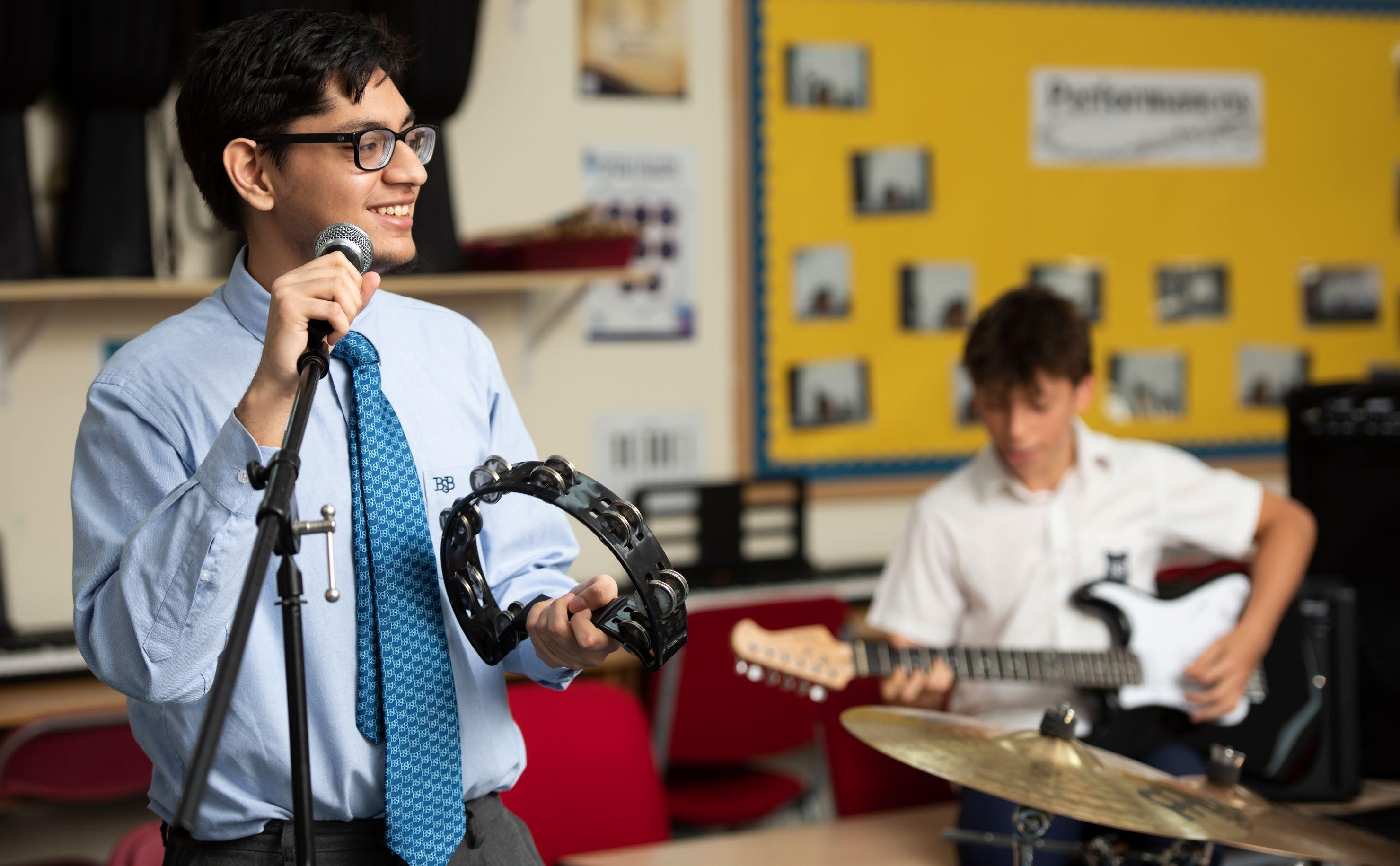
Additionally, Music is of course inherently useful for Arts and Media courses. Careers within the Arts of Music Production, Performing Artists, Events and Festival Management, Sound Engineering, Artist Representation, Touring Coordination, Video Production, and many other careers in the wider industry are all possible following this. As the industry grows within the region and around the world, this specialism and extended skillset is very much in demand, and regularly leads to fruitful long term success.
Entry requirements
Performance standard of at least Grade 6 (ABRSM or Trinity) or equivalent. Grade 5 Theory recommended. 7 or above in GSCE Music.
Click here to see more course specifications. Component 1 2 3 Component name Performing Compositon Appraising Assessment method Performance Externally Moderated Coursework Written Examination Weighting % 30% 30% 40% Duration of exam Composition briefs are released in the September of Year 2 1h 30m
SCIENCES
IAL BIOLOGY
What will students learn?
Students will learn the major topics in biology, including biological molecules, diet, transport, health, cells, development, biodiversity, conservation, energy, the environment, microbiology, immunity, respiration, the internal environment, coordination and gene technology.
Skills and understanding
Students will learn to apply their knowledge and understanding to familiar and unfamiliar contexts; they will develop experimental skills, and a knowledge and understanding of experimental techniques, by carrying out a range of practical experiments and investigations; they will analyse and evaluate of scientific information to make judgments and reach conclusions.
Exam Board International A level - Edexcel Syllabus code YBI11
Examination Structure
The course is modular. Students will sit three modules each in Years 12 and 13.
Higher Education and Career Paths
Biology is important for students considering careers in areas such as medicine, veterinary medicine, dentistry or forensic science. The skills developed in A Level Biology can be applied across a range of careers, including non-scientific professions such as law, finance or teaching. Biology is one of the facilitating subjects identified by the Russell Group of universities.
Entry requirements
7 in IGCSE Biology & 7 in IGCSE Mathematics. Click here to see more course specifications.
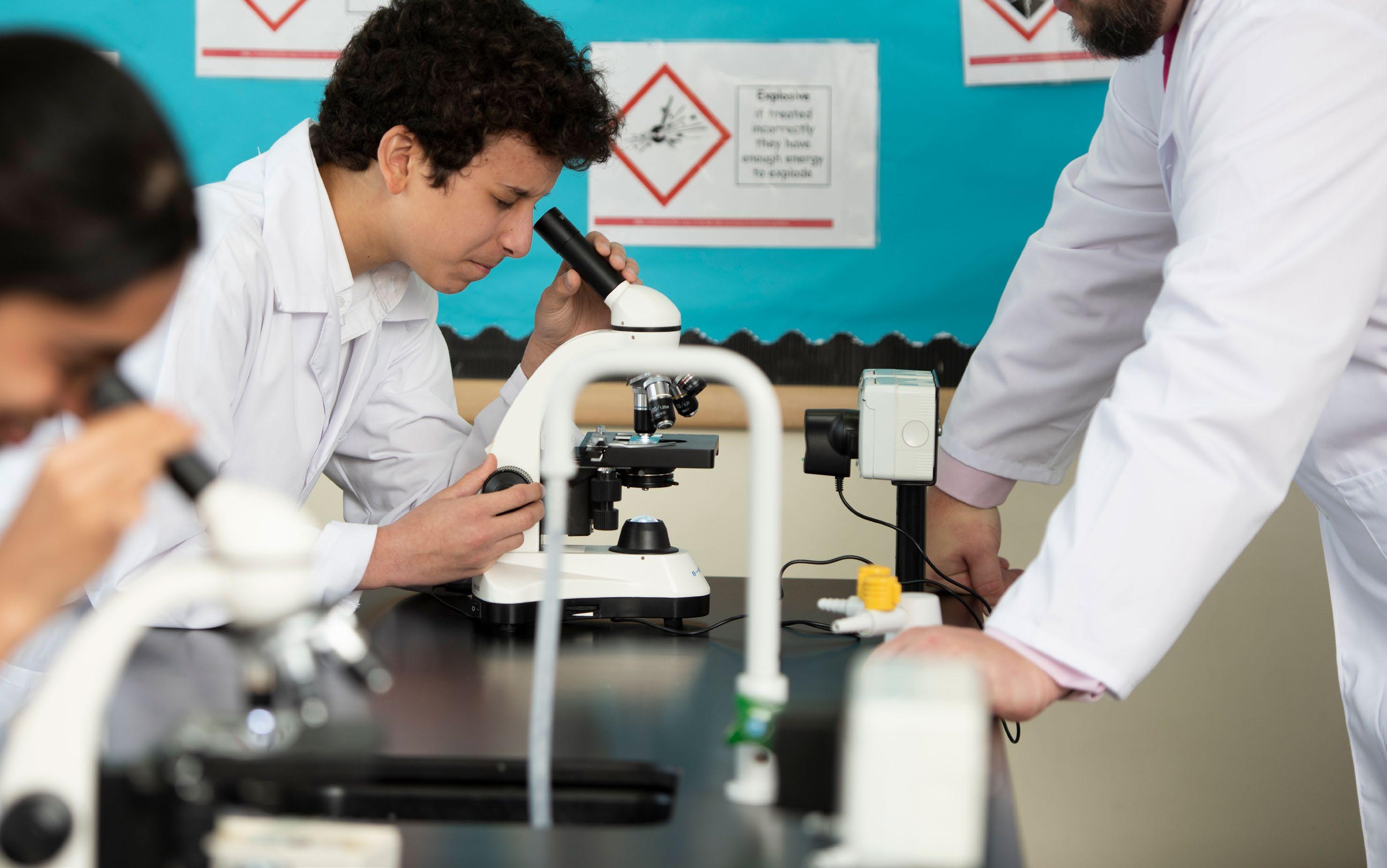
Component 1 2 3 4 5 6 Component name Molecules, Diet, Transport and Health Cells, Development, Biodiversity and Conservation Practical Skills in Biology Energy, Environment, Microbiology and Immunity Respiration, Internal Environment, Coordination and Gene Technology Practical Skills in Biology II Assessment method Written Examination Written Examination Written Examination Written Examination Written Examination Written Examination Weighting % 20% 20% 10% 20% 20% 10% Duration of exam 1h 30m 1h 30m 1h 20m 1h 45m 1h 45m 1h 20m
IAL CHEMISTRY
What will students learn?
Students will learn the major topics in chemistry, including molar calculations, structure and bonding, energetics, rates, equilibria, Group chemistry, transition metals and a range of organic chemistry; as well as associated experimental skills.

Skills and understanding
Students will develop their knowledge and understanding of chemistry by applying its concepts to a range of different problems, set in a variety of contexts; Students will develop laboratory based practical skills and a reliable understanding of experimental techniques associated with the subject; Students will enhance their evaluative and analytical chemistry skills by using experimental data to assess scientific questions and reach suitable conclusions.
Examination structure
Exam Board International A level - Edexcel Syllabus Code YCH11
The course is modular. Students will sit three exams each in Years 12 and 13.
Higher Education and Career Paths
Studying chemistry at A Level provides the necessary foundation for students wishing to move into scientific or medical based higher education courses. Often desired from top universities, the attainment of chemistry a level shows an excellent understanding of scientific content but also an aptitude for other desirable skills, such as laboratory work and mathematical skills. Studying chemistry can lead into exciting career opportunities such as analytical chemistry, chemical engineering, healthcare science, forensic science, nanotechnology, pharmacology and toxicology.
Chemistry is one of the facilitating subjects identified by the Russell Group of universities.
Entry requirements
7 in IGCSE chemistry & 7 in IGCSE Mathematics. Click here to see more course specifications.
1 2 3 4 5 6
I
II Assessment method Written Examination Written Examination Written Examination Written Examination Written Examination Written Examination Weighting % 20% 20% 10% 20% 20% 10% Duration of exam 1h 30m 1h 30m 1h 20m 1h 45m 1h 45m 1h 20m
Component
Component name Unit 1 - Structure, Bonding and Introduction to Organic Chemistry Unit 2 - Energetics, Group Chemistry, Halogenoalkanes and Alcohols Unit 3 - Practical Skills in Chemistry
Unit 4 - Rates, Equilibria and Further Organic Chemistry Unit 5 - Transition Metals and Organic Nitrogen Chemistry Unit 6 - Practical Skills in Chemistry
Exam Board International A level - Edexcel Syllabus code YPH11
What will students learn?
Mechanics & Further Mechanics, Materials, Waves, Electric Current, Nature of Light, Fluid Movement, Momentum , Circular Motion, Electric Fields, Magnetic Fields, Electromagnetism, Capacitors, Particles, Thermal Energy, Nuclear Decay, Simple Harmonic Motion, Astrophysics & Cosmology.
Skills and understanding
Develop knowledge and understanding of what it means to work scientifically; develop confidence in key scientific skills such as handling and controlling quantities and units and making estimates; learn about how the scientific community functions and how society as a whole uses scientific ideas; develop the ability to think critically about what they read; gain practice in communicating information and ideas in an appropriate scientific way; apply their knowledge and understanding to unfamiliar contexts; plan experiments and analyse and evaluate data.
Examination structure
The course is modular. Students will sit three modules each in Years 12 and 13
Higher Education and Career Paths
A level Physics provides a suitable foundation for specialist study at University in mathematics, physics, mechanical engineering, computer science, civil engineering, economics and business. The course provides an excellent basis for all sorts of many amazing career options including geophysicist, healthcare scientist, research scientist, laboratory technician, meteorologist, patent attorney, technical author, astrophysicist, nanotechnology and renewable energy. With Physics the opportunities are endless.
Physics is one of the facilitating subjects identified by the Russell Group of universities.
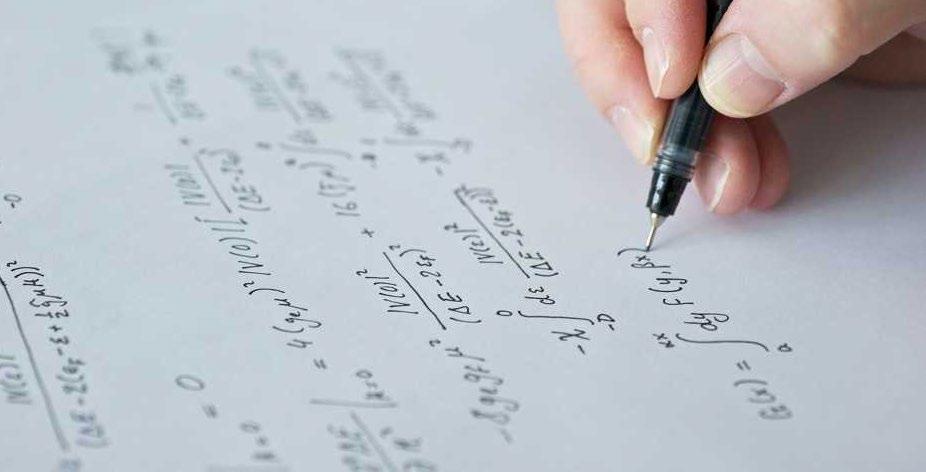
Entry requirements
7 in iGCSE Physics and 7 in GCSE Mathematics. Click here to see more course specifications.
PHYSICS
IAL
Component 1 2 3 4 5 6 Component name Unit 1 Mechanics and Materials Unit 2 Waves and Electricity Unit 4 Further Mechanics Fields and Particles Unit 5 Thermodynamics, Radiation, Oscillations and Cosmology Unit 6 Practical Skills in Physics 2 Assessment method Written Examination Written Examination Written Examination Written Examination Written Examination Written Examination Weighting % 20 % 20 % 10 % 20 % 20 % 10 % Duration of exam 1h 30m 1h 30m 1h 20m 1h 45m 1h 45m 1h 20m
IAL PHYSICAL
Exam Board Edexcel Syllabus code 9PE0
What will students learn?
Students will look at sport from a range of perspectives, including scientific, psychological and social principles of physical education as well as practical performance. Performance can be assessed as either a player or coach. Students will also have the opportunity to undertake an in depth analysis of their own performance, from a physiological perspective and also a tactical or techincal perspective.
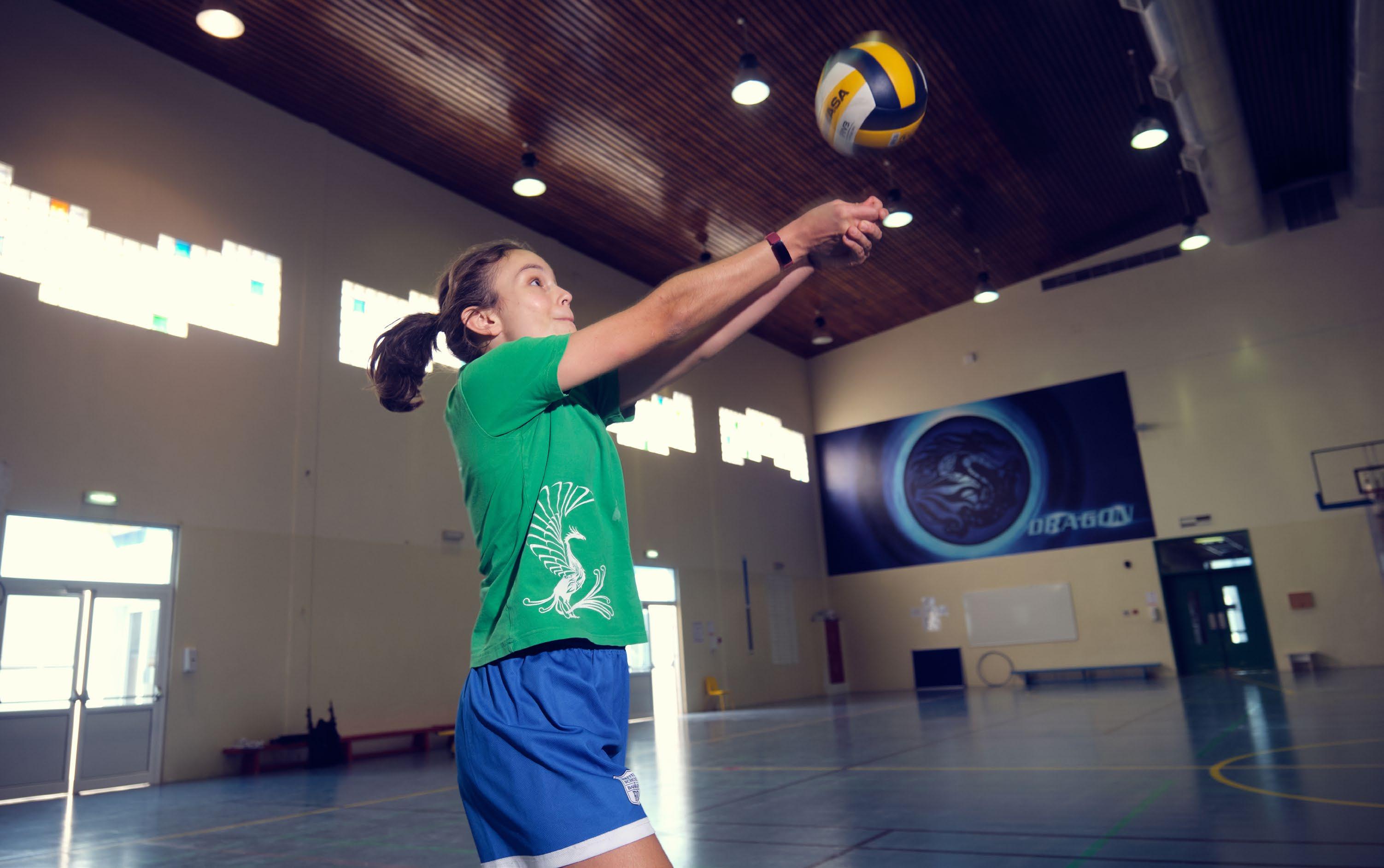
Skills and understanding
Develop theoretical knowledge of the factors that underpin physical activity and sport and use this knowledge to improve performance; understand how physiological and psychological states affect performance; understand the role of technology in physical activity and sport; develop their ability to analyse and evaluate to improve performance; refine their ability to perform effectively in physical activityand sport.
Examination structure
Students complete the A2 (2 papers) exam in year 13, as it is a linear course, there is no option to sit an AS exam. There are two coursework units to be completed during the course and moderated in Year 13; practical performance and performance analysis
Higher Education and Career Paths
University courses linked to sport, such as sports science, sports management or physiotherapy are very popular. Careers in sports technology, coaching, teaching, leisure and tourism, physiology, performance analysis are to name a few exciting opportunities in the world of sport.
Entry requirements
Entry requirements – Students will need to play one sport at a highly competitive level, either inside school or for a club/team outside of school, due to the practical assessment part of the course. As this course links closely with Biology, students will need to have a achieved at least a grade 6 in GCSE science. Click here to see more course specifications.
EDUCATION
Component 1 2 3 4 Component name Scientific Principles of Physical Education (9PE01) Psychological and Sociological Principles in Physical Education (9PE02) Practical Performance (9P03) Performance Analysis Assessment method Examination Examination Coursework; internally assessed, externally moderated Coursework; internally assessed, externally moderated Weighting % 40% 30% 15% 15% Duration of exam 2h 30m 2h
BTEC ENGINEERING
What will students learn?
There are two options, BTEC Engineering Qualification (Two Years Programme Course):
1. Pearson BTEC International Level 3 Diplomas in Engineering, 720 GLH Equivalent in size to two International (A) Levels. 720 GLH of units of which 360 GLH are mandatory (240 GLH are assessed through Pearson Set Assignments) and 360 GLH selected from the given optional unit lists. Mandatory content (42%).
A two-year, full time course for learners to gain relevant skills and knowledge from studying a range of content focused on engineering disciplines, for example electrical machines or maintenance of mechanical systems. Designed to be the substantive part of a 16–19 study programme for learners who want a strong core of sector study and a focus on engineering.
2. Pearson BTEC International Level 3 Extended Diplomas in Engineering, 1080 GLH Equivalent in size to three International (A) Levels. 1080 GLH of units of which 540 GLH are mandatory (360 GLH are assessed through Pearson Set Assignments) and 540 GLH selected from the given optional unit lists. Mandatory content (50%).
A two-year, full-time course for learners who want to progress to employment in a range of engineering roles. Progress could be either directly to employment in Level 3 roles, or via higher-education engineering courses.
Exam Board Edexcel Syllabus code BTEC International L3
Students will learn different skills and concepts in each unit outlined below: Year-12
• Unit 1 Mechanical Principles, Mandatory, Pearson Set Assignment.
• Unit 2 Delivery of Engineering Processes Safely as a Team, Internal Assignments.
• Unit 3 Product Design and Manufacture in Engineering, Mandatory, Pearson Set Assignment
• Unit 10 Computer Aided Design in Engineering, Internal Assignments.
• Unit 23 Digital and Analogue Electronic Systems, Internal Assignments.
• Unit 31 Thermodynamic Principles and Practice, Internal Assignments.
• Unit 57 Electrical and Electronic Principles, Mandatory, Pearson Set Assignment. Year 13
• Unit 4 Applied Commercial and Quality Principles in Engineering, Internal Assignments.
• Unit 6 Microcontroller Systems, Mandatory, Pearson Set Assignment.
In addition to four more optional units which will selected by the course leader including work experience.
Entry requirements
Grade 5 in GCSE Computer Science or ICT. Also Grade 5 or higher in Physics and Maths.
Skills and understanding
The BTEC Engineering course will cover:
• Cognitive and problem-solving skills – using critical thinking, approaching non-routine problems, applying expert and creative solutions, using systems and technology.
• Interpersonal skills – communicating, working collaboratively, negotiating and influencing, self-presentation.
• Intrapersonal skills – self-management, adaptability and resilience, self-monitoring and development.
How will I be assessed?
The course is assessed via 100% coursework and there are no external examinations. Coursework portfolios can be in the form of research projects, case studies, written reports or presentations.
Higher Education and Career Paths
These qualifications also support those following an apprenticeship in engineering who are looking to work and progress in the engineering sector as an engineering technician or as an engineering operative. After completing this qualification, learners can progress directly to technician roles, These qualifications are recognised by higher education providers as contributing to meeting admission requirements for many relevant courses in a variety of areas of the engineering sector, for example: BEng (Hons) in Engineering. Learners should always check the entry requirements for degree programmes with specific higher education providers.
BTEC APPLIED SCIENCE
What will students learn?
The core biology aspect of the course will cover topics including cellular biology, the anatomy and physiology of body systems, biological pathways, their relevance to diseases and treatments.
The core chemistry aspect of the course will cover topics including atomic structure, bonding, the periodic table and calculations.
The core physics aspect of the course will cover topics including electromagnetic waves, forces, motion, thermal physics, materials, fluids and radioactivity.
The elective units will cover topics including human diseases and treatments, the characteristics of microorganisms, transition metals, solubility, energetics, redox reactions, organic chemistry, understanding aromatic compounds; the course will also allow students to develop their practical skills.
Exam Board Edexcel
Syllabus code BTEC International L3
Students will learn different skills and concepts in each unit outlined below: Year-12
• Unit 1 Principles and Applications of Biology 1
• Unit 2 Principles and Applications of Chemistry 1
• Unit 3 Principles and Applications of Physics 1
• Unit 4 Investigative Project Skills
• Unit 15 Diseases and infections Year 13
• Unit 5 Principles and Applications of Biology 2
• Unit 6 Principles and Applications of Chemistry 2
• Unit 7 Principles and Applications of Physics 2
• Unit 16 Applications of Inorganic Chemistry
• Unit 19 Microbiology and Microbiological Techniqeues
• Unit 21 Applications of Organic Chemistry
Entry requirements
Grade 4 or higher in two sciences and mathematics.
Skills and understanding
The BTEC Applied Science course will cover:
• Cognitive and problem-solving skills – using critical thinking, approaching non-routine problems, applying expert and creative solutions, using systems and technology.
• Interpersonal skills – communicating, working collaboratively, negotiating and influencing, self-presentation.
• Intrapersonal skills – self-management, adaptability and resilience, self-monitoring and development.
How will I be assessed?
International BTECs are internally assessed allowing for practical assignments that combine knowledge and career related skills. 25% of these assignments will be set by Pearson to provide additional external standardisation. Assignments are scenario based and designed to be work relevant, for example by researching and presenting information and demonstrating the skills needed for employment.
Higher Education and Career Paths
This qualification is designed to support learners who want to study science-based qualifications as the main element alongside another area of complementary or contrasting study as part of a two-year, fulltime study programme. The qualification would support progression to higher education if taken as part of a programme of study that included other BTEC International Level 3 qualifications or International A Levels.
This qualification supports progression to job opportunities in the science industry at a variety of levels. Jobs available in these areas include:
• Chemical Technician
• Biomedical Scientist
• Clinical Scientist
• Environmental Scientist.
After achieving this qualification, while learners can progress directly to entry-level science roles, it is likely that many will do so via higher study. This qualification is recognised by highereducation institutions as fully meeting admission requirements to many relevant courses in a variety of areas of the science sector, for example:
• BSc (Hons) in Chemistry with Analytical Science
• BSc (Hons) in Bioscience
• BSc (Hons) in Environmental Science
BTEC SPORT SCIENCE
What will students learn?
Students will learn different concepts in each unit as outlined below:
• Unit 1 Health, well-being and sport
• Unit 28 Fitness Testing
• Unit 30 Organising Events in Sport and Physical Activities
• Unit 32 Sports Performance Analysis
• Unit 33 Rules, Regulations and Officating in Sport
• Unit 35 Practical Sports Performance
• Unit 37 The Liverpool Coach – Employability Skills Skills and understanding
• Information processing: This course prepares you for a career either in professional sport or the general world of work where you will need to condense information into an understandable way for audience members.
• Practical applicaton: You will use a variety of methods to investigate each area of study such as completing practical analysis, video analysis, presentations and scouting reports
• Statistical Analysis: You will interpret performance data to investigate the strengths and weaknesses of professional sports persons and teams
Exam Board Edexcel
Syllabus code BTEC Level 3 Subsidiary Diploma in Sport (CZXJ2)
How will I be assessed?
Students are given opportunities to:
• Write up the findings of their own research
• Use case studies to explore complex or unfamiliar situations
• Carry out projects for which they have choice over the direction and outcomes
• Demonstrate practical and technical skills using appropriate presentations and role plays.
All units are internally assessed and moderated by a UK external examiner. A summative unit grade can be awarded at pass, merit or distinction.
Higher Education and Career Paths
Sports Science degree which can lead onto working in a professional sporting environment such as a performance analyst, coach or sports scientists. If students do use this course to study sport at University, they are able to apply their skills during work experience opportunities with professional sports teams. Universities can place students with professional teams such as Liverpool (football), Newcastle United(football), Everton (football) and London Wasps (rugby) etc.
Students do not always go on to have careers in professional sport, using the skills and techniques gained during the course to study and have careers in finance, marketing, business, construction and industry.
Entry requirements
To be accepted onto the BTEC course, students must have a keen interest in sport and have achieved the requirements for the school to enter 6th Form. Students that have not met this requirement may be accepted, based on the judgement of the Director of Sport and Director of 6th Form, on a 6 week trial. If they have not caught up or achieved a high enough standard by the end of the trial, they will be removed from the course.
Click here to see more course specifications.

HUMANITIES
Exam Board Cambridge
Syllabus code 9696
What will students learn?
The A Level course builds on aspects of the iGCSE course. Students will develop an understanding of:
• the principal processes operating within physical geography and human geography
• the causes and effects of change on natural and human environments
• an awareness of the usefulness of geographical analysis to understand and solve contemporary human and environmental problems.
Skills and understanding
Students will develop their problem solving skills, learning to analyse a variety of source material and present their ideas in a clear and logical fashion. They will also be able to link theoretical concepts and processes to real-world examples.
The use of up to date and relevant case studies is an important feature in Geography. Students develop their wider understanding of recent storms and tectonic events in the news, current world situations like flooding in Pakistan and the energy crisis in Europe.
Examination structure
The course is modular with AS taken by all in year 12 with the option to continue in year 13 to A2. A C grade is required to move onto A2.
Higher Education and Career Paths
Jobs which involve people or the environment, for example engineering or medicine, would be highly benefitted by A Level Geography.
Geography is a facilitating subject for entrance to universities because it is a cross curricula subject that keeps options open with it encompassing both the arts (writing skills/ report writing) and sciences/maths (data interpretation). As a traditional A level qualification it is highly regarded as an entry requirement for all university courses. Students of A Level
Geography go on to study a wide variety of subjects at university and enter a wide variety of careers.

Entry requirements
7 or above in Geo.
Click here to see more course specifications.
IAL GEOGRAPHY
Component 1 2 3 4 Component name AS Paper 1: Core Physical Geography AS Paper 2: Core Human Geography A2 Paper 3: Advanced Physical Geography A2 Paper 4 : Advanced Human Geography Assessment method Exam Exam Exam Coursework Weighting % 25% 25% 25% 25% Duration of exam 1h 30m 1h 30m 1h 30m 1h 30m
Exam Board AQA Syllabus code 7182
What will students learn?
Year 12 Students will learn introductory topics within Psychology such as Social Influence, Memory, Attachment, Psychopathology, and Biopsychology. As well as this students will learn Psychology in context, which will focus on Psychological concepts, research and theories.
In Year 13 Students will further develop their understanding of Biopsychology, as well as the different approaches within Psychology (Humanistic, Psychodynamic, Biological, Cognitive, and Behaviourist). Research methods will be further developed in Year 13 looking at Statistical tests, as well as type 1 and 2 errors. In Year 13 students will also study 3 option modules which will be: Schizophrenia, Cognition and Development, and Aggression.
Skills and understanding
• Develop essential knowledge and understanding of different areas of the subject and how they relate to each other
• Develop and demonstrate a deep appreciation of the skills, knowledge and understanding of scientific methods; develop competence and confidence in a variety of practical, mathematical and problem-solving skills
• Develop their interest in and enthusiasm for the subject, including developing an interest in further study and careers associated with the subject; understand how society makes decisions about scientific issues and how the sciences contribute to the success of the economy and society.
Examination structure
All students are required to take the AS at the end of Year 12 also, the course is linear, meaning that all examinations will take place at the end of Year 13.

Higher Education and Career Paths
A level psychology provides a suitable foundation for specialist study of Psychology at University, as well as other academic areas such as Biomedical sciences, counselling, and Business. The scientific aspects of the Psychology course, including the application of a reasoned approach, problem solving and manipulation of data, provide useful tools for careers in healthcare, law enforcement, finance, IT and research. The most popular career paths include: Clinical Psychology, Psychitry, and Further Education.
Further more the knowledge of human behaviour and motivation, ability to critically analyse a problem, formulate a considered response, create an argument and generate new ideas lend themselves well to careers in the creative industries, the legal sector, government administration and education.
LEVEL
Component 1 2 3 Component name Introductory topics in Psychology Psychology In context Issues and Options in Psychology Assessment method Written Examination Written Examination Written Examination Weighting % 33.3 % 33.3 % 33.3 % Duration of exam 2h 2h 2h Entry
or above in GCSE Mathematics, Biology, and English
here to see more course specifications.
A
PSYCHOLOGY
requirements 6
Click
A LEVEL HISTORY
What will students learn?
Students learn about the significance of the two preeminent communist states of the twentieth century, discovering the politics, economics and society of both Lenin’s USSR and Mao Zedong’s China. They also consider the ebb and flow of the British Empire from the loss of the Thirteen Colonies of America, to the global dominance of Imperial Britain and its role in Australia, Canada, India and Egypt. Finally, all students carry out an independent coursework assignment focused on the October Revolution of 1917.
Skills and understanding
A Level History students develop their essay writing skill to a university level. Our students learn how to build an argument considering a wide variety of factors which have influence over an event or period of time; identifying the most significant and analysing its effect are key historical skills. Students will use historical and modern sources to infer meaning by weighing up the effect of the nature, origin, and purpose of the source.
Examination structure
Exam Board Edexcel Syllabus code 9HI0
The course is examined at the end of Y12 and the end of Y13. To carry on to Y13 students need to achieve a C from the AS exam in Y12. The Y13 exams determine the final grade for the course.
Higher Education and Career Paths

Students with A Level History are desired by top universities as it is not only a facilitating subject (one with transferable skills that will help higher level studies), but a demanding academic subject in its own right. Degree courses and careers in the areas of law, journalism, politics, education and business are common.
Entry requirements
7 or above in GCSE History or equivalent. Not recommended for ESL students. Click here to see more course specifications.
Component 1 2 3 4 Component name Unit 1: Russia, 1917–91: from Lenin to Yeltsin Unit 2: Option 2E.1: Mao’s China, 1949–76 Unit 3: Option 35.1: Britain Losing and Gaining an Empire, 1763 - 1914 Unit 4: Coursework: The Russian Revolution, 1917 Assessment method Exam Written Examination Written Examination Coursework Weighting % 30% 20% 30% 20% Duration of exam 2h15 2h 30m 2h 15m
TECHNOLOGY
Exam Board Cambridge Syllabus code 9618
What will students learn?
• Develop computational thinking ideas and skills
• Develop an understanding of the main principles of solving problems using computers
• Develop an understanding that every computer system is made up of subsystems, which in turn consist of further subsystems
• Develop an understanding of the component parts of computer systems and how they interrelate, including software, data, hardware, communications and people
• Acquire the skills necessary to apply this understanding to develop computer-based solutions to problems.
Skills and understanding
• Students will develop their problem solving skills and ability to break down complex tasks.
• Students will become familiar with programming in particular with Python.
• Students will also build an understanding of computer architecture and boolean logic.

Examination structure
The course is modular. Students will sit two exams each in Years 12 and 13.
Higher Education and Career Paths
The analytical and problem solving skills developed through computer science make students highly employable both in and out of technologyrelated careers. Computer science may lead to a job such as a software engineer, computer engineer or information systems professional. A level computer science is acceptable as entry qualifications for the vast majority of college and university courses in just about any subject.
Entry requirements
7 or above in GCSE Computer Science (or equivalent) and Mathematics. 6 or above in English and Science. Students with a level 6 will be considered if they have an average attitude to learning of 2 or above. Click here to see more course specifications.
COMPUTER SCIENCE
IAL
Component 1 2 3 4 Component name Paper 1 Theory Fundamentals Paper 2 Fundamental Problem-solving and Programming Skills Paper 3 Advanced Theory Paper 4 Practical Assessment method Written Examination Written Examination Written Examination Practical on PC Weighting % 25% 25% 25% 25% Duration of exam 1h 30m 2h 1h 30m 2h 30m
BTEC INFORMATION TECHNOLOGY
What will students learn?
BTEC IT
There are three options:
1. BTEC IT Subsidiary-Diploma, equivalent to 1 A Level, students taking the subsidiary route will complete 360 Guided Learning Hours (GLH) each year.
2. Diploma, equivalent to 2 A Levels, students will complete 720 GLH per year. Students will learn different skills and concepts in each unit outlined below.
3. Extended-Diploma, equivalent to 3 A-Levels, students will complete 1080 GLH in two years. As in Diploma above but there will be extra units related to high technologies, gaming, robotics and computer network.
In Year 12
Unit 1 Information Technology System - Developing communication skills using IT facilities.
Unit 2 Creating Systems to Manage Information - Understanding about handling and managing data using Access database.
Unit 6 Website Development - The principles behind how to design an effective website for a business need.
Unit 9 IT Project management - Understand about IT project lifecycle and management of IT project.
In Year 13
Exam Board Edexcel
Syllabus code BTEC International Level 3
Unit 3 Using Social Media in Business.
Unit 7 Mobile Apps Developments - Learn and develop skills in Mobile Apps application.
In addition, three more units to be selected by the lead course teacher.
Skills and understanding
You will learn a mixture of business, technical, interpersonal and project skills needed in modern IT and telecommunications roles; Students will develop various image editing software skills; Students will also learn about different topics such as what a computer system is, project planning and communication and employability skills for IT.
How will I be assessed?
The course is assessed via 100% coursework and there are no external examinations. Coursework portfolios can be in the form of research projects, case studies, written reports or presentations.
Higher Education and Career Paths
Due to the advancements in technology, ICT is essential in many careerpathways. After completing the BTEC IT course, you will have earned a valuable qualification that can lead on to university courses based around IT or Computer Studies. Alternatively, you could move into employment within the IT industry.

Entry requirements
Grade 5 in GCSE Computer Science or ICT. Also Grade 5 or higher in English and Maths.
Click here to see more course specifications.
BUSINESS & ECONOMICS
Exam Board Edexcel Syllabus code 9EB0
What will students learn?
Students are introduced to Economics through building knowledge of core microeconomic and macroeconomic concepts, and by investigating economic theory through real-world businesses and the environments in which they operate; Breadth and depth of knowledge and understanding with applications to more complex concepts and models are developed in the second year of study. Students will need to apply their knowledge and understanding to both familiar and unfamiliar contexts in the assessment and demonstrate an awareness of current economic events and policies.
Skills and understanding
• Demonstrate knowledge of concepts and theories and their effects on economic agents
• Analysis of current economic and political events and their potential ramifications
• Use policy instruments to reach justified solutions to current economic issues
• Recommend methods of improving the success of firms in context
• Develop literacy skills to delivery university-level essays which effectively discuss economic issues
Examination Structure
• The course is linear, meaning that all examinations will take place at the end of Year 13.
• There is no longer an option to sit an AS exam meaning that students must complete the 2-year course to obtain a qualification.
Higher Education and Career Paths
This course lends itself well to further study in economics, business, politics, journalism and law. Additionally, the skills developed which focus on the understanding and analysis of both quantitative and qualitative data make economics an excellent choice regardless of career path,
Entry requirements
7 or above in GCSE English and Maths. - Must have studied GCSE economics and attained at least a B. Click here to see more course specifications.

LEVEL
A
ECONOMICS
Component 1 2 3 Component name Paper 1 Markets and how they work Paper 2 Competing in the global economy Paper 3 The economic environment and business Assessment method Written Examination Written Examination Written Examination Weighting % 35% 35% 30% Duration of exam 2h 2h 2h
IAL BUSINESS
What will students learn?
Students will study a variety of topics including: marketing, human resources, finance, production and the business environment.
Skills and understanding
• Understand and appreciate the nature and scope of business and the role it plays in society
• Develop critical understanding of organisations, the markets they serve and the process of adding value
• Enhance a variety of skills including problem-solving, decisionmaking and communication
• Explore political, economic, social, technological, legal, environmental and ethical issues associated with business activity
• Evaluate business behaviour from the perspective of a range of stakeholders.
Examination Structure
Exam Board Cambridge
Syllabus code 9609
Entry requirements
7 or above in GCSE English and Math. GCSE business is desired. Click here to see more course specifications.
The course is modular. Students will sit two exams in Year 12 and two exams in Year 13.

Higher Education and Career Paths
Possible university and career choices include management, marketing, HR, finance, accounting, banking, retailing, and government. In fact, Business is one of the most versatile subjects as the vast majority of graduates end up working in businesses.
Component 1 2 3 4 Component name Paper 1 Business Concepts 1 Paper 2 Data Response Paper 3 Case Study Paper 4 Business Strategy Assessment method Written Examination Written Examination Written Examination Written Examination Weighting % 20% 30% 30% 20% Duration of exam 1h 15m 1h 30m 1h 15m 1h 15m
BTEC BUSINESS
What will students learn?
Students opting for the diploma programme will complete 12 units in total:
Year 12
• Unit 1 Exploring business
• Unit 2 Research and plan a marketing campaign
• Unit 3 Business finance
• Unit 4 Managing an event
Year 13
• Unit 7 Business decision making
• Unit 20 Business ethics
• Unit 34 Enterprise and entrepreneurship
• Unit 34 Launch and run an enterprise
Students opting for the extended diploma will complete 18 units in total-those mentioned above along with the following units:
Exam Board Edexcel
Syllabus code BTEC Level 3 National Diploma 500/6747/3 (1200 TQT)
Year 12
• Unit 9 Creative Product Promotion
• Unit 10 Market Research in Business
• Unit 12 Internet Marketing in Business
Year 13
• Unit 16 Human Resources Management in Business
• Unit 19 Developing Teams in Business
• Unit 29 Understanding Retailing
Skills and understanding
Students will perform vocational tasks that encourage the development of appropriate vocational behaviours and transferable skills such as communication, teamwork, research and analysis.
Entry requirements
Students must have a keen interest in business and achieve 5 A*-Cs, including Maths and English. Students that have not met this requirement will be accepted, based on the judgement of the Head of Business on a 6 week trial. If they have not caught up or achieved a high enough standard by the end of the trial, they will be removed from the course. The Head of Business will be seeking 2-3 verbal references from teachers regarding attitude to learning . Students do not have the option of completing the entire diploma in one year. Students will achieve the equivalent to one A Level by the end of Year 12.
Students wishing to complete the Extended Diploma will be considered after a 6 week trial period. A decision on acceptance into the course will be based on their performance in the Dipoma programme. Only students submitting a high standard or work with an ability to meet all deadlines and a good work ethic will be accepted onto the course. The Head of Business will be seeking 2-3 verbal references from teachers regarding attitude to learning. Students doing the extended diploma must remain in school until the end of year 13.
How will I be assessed?
Students are assessed using a variety of styles to help them develop a broad range of transferable skills; Students are given opportunities to:
• Write up the findings of their own research
• Use case studies to explore complex or unfamiliar situations
• Carry out projects for which they have choice over the direction and outcomes
• Demonstrate practical and technical skills using appropriate presentations and role plays.
All units are internally assessed and moderated by a UK external examiner. A summative unit grade can be awarded at pass, merit or distinction.
Higher Education and Career Paths
The BTEC Business Diploma with one other award allows student to gain access to several business related degrees in the following universities:
• Oxford Brookes, Kent Brighton, Keele, Leeds Beckett, Portsmouth, Cardiff Metropolitan, Reading, Westminster
• The BTEC Extended Diploma will allow students to gain access to range of business related degrees in top UK universities including, Nottingham, Lancaster, Loughborough, Surrey.
OTHER
EXTENDED PROJECT QUALIFICATION
Course Outline
The Edexcel Level 3 Extended Project allows learners to study a topic area which extends their learning in their area of study. Learners select one of the four units, which may be completed over one or two years. They should select a project topic which expands their learning in their field of study, in a related area, or that is relevant to their own personal interests. Each of the four units offers a different type of project: a dissertation, an investigation/field study, a performance or an artefact. Learners will be assessed on their ability to plan, manage, complete and review their project. It can be completed over one or two years, and is assessed by a tutor-assessor from within the centre and externally moderated by Edexcel.
What will students learn?
This qualification will enable learners to have significant input to the choice and design of their project and take responsibility for an individual task or a defined task within a group project; as such they may choose precisely which subject or topic to extended their knowledge in.
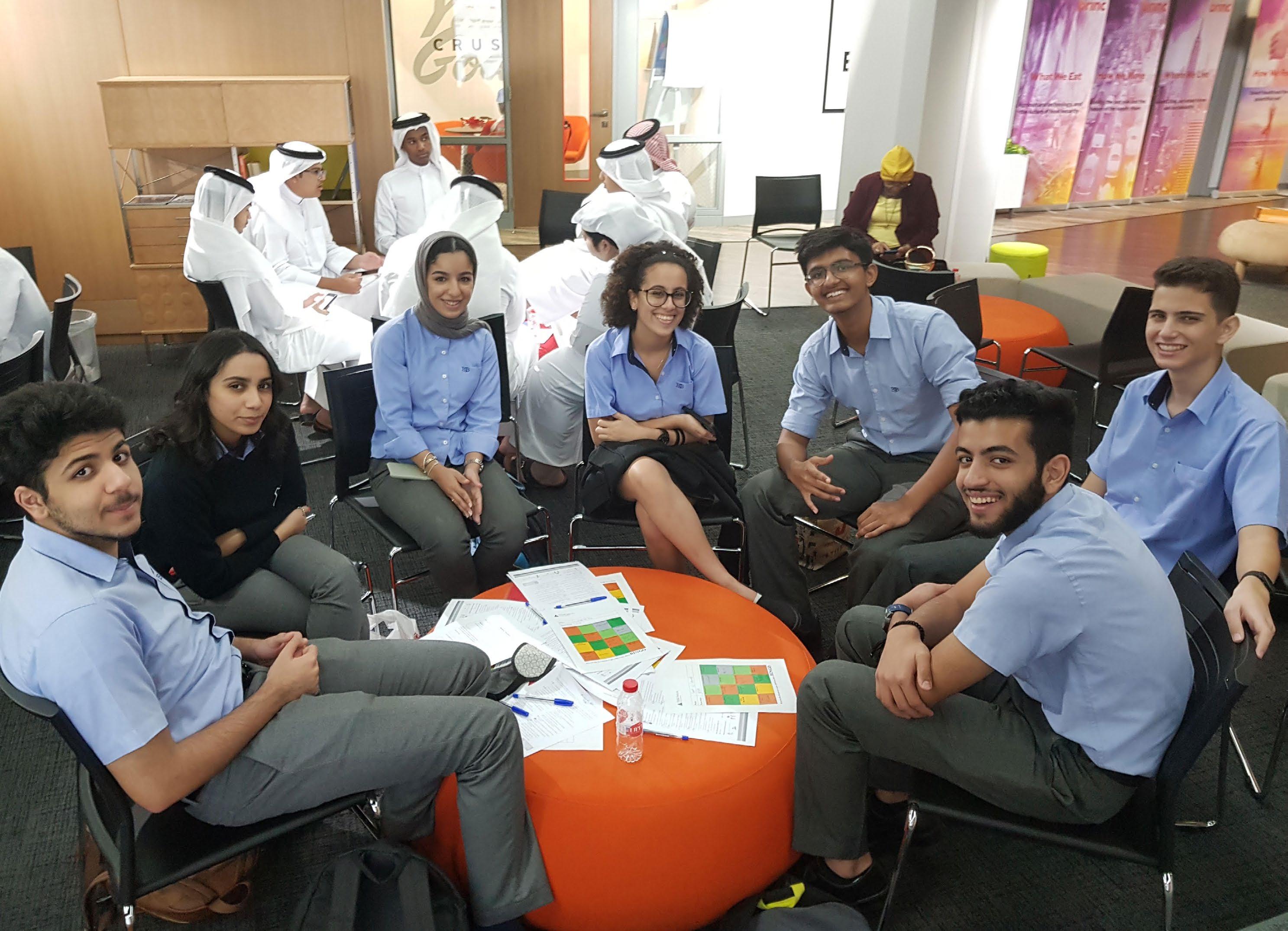
Skills and understanding
Exam Board Edexcel Syllabus code ZPJ30
Entry requirements
At
Students will develop and improve their own learning and performance as critical, reflective and independent learners; develop and apply decision making and, where appropriate, problem solving skills; extend their planning, research, critical thinking, analysis, synthesis, evaluation and presentation skills; where appropriate, develop as e-confident learners and apply relevant technologies in their studies; develop and apply skills, creatively demonstrating initiative and enterprise; use their learning experiences to support their personal aspirations for further education and/or career development.
How will I be assessed?
University courses linked to sport, such as sports science, sports management or physiotherapy are very popular. Careers in sports technology, coaching, teaching, leisure and tourism, physiology, performance analysis are to name a few exciting opportunities in the world of sport.
Why consider this additional course
While the EPQ does not necessarily lead towards a particular university or career path, the skills developed - project management, universitylevel research skills and academic writing and referencing - will be hugely beneficial in higher education. Students who have done the EPQ often find the transition to university easier. Furthermore, many students choose topics aligned with their intended degrees, meaning that they possess a significant breadth and depth of existing knowledge.
least a 5 in English GCSE (Not ESL)
+973 17610920 thebsbh britishschoolbahrain admissions@thebsbh.com www.britishschoolbahrain.com britishschoolbahrain













 MS. SANIYA KAKKAR Assistant Director of Sixth Form kakkars@thebsbh.com
MR. ANDREW ROGERS Head of Year 11 rogersa@thebsbh.com
MR. ADAM SAVVEDES-LAW Assistant Director of Sixth Form savvedes-lawa@thebsbh.com
MS. SEMONE BEECHER Assistant Director of Sixth Form beechers@thebsbh.com
MS. SANIYA KAKKAR Assistant Director of Sixth Form kakkars@thebsbh.com
MR. ANDREW ROGERS Head of Year 11 rogersa@thebsbh.com
MR. ADAM SAVVEDES-LAW Assistant Director of Sixth Form savvedes-lawa@thebsbh.com
MS. SEMONE BEECHER Assistant Director of Sixth Form beechers@thebsbh.com



















